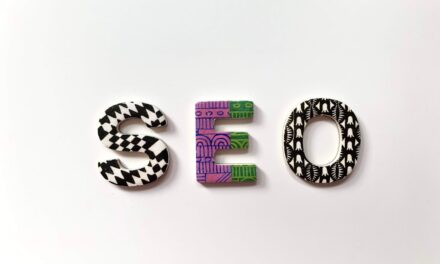How Much Should You Pay for Local SEO Services? A full guide for local service businesses, including house cleaning, commercial cleaning, pool cleaning, pressure washers, mobile detailers, and more
Getting a straight answer for digital marketing quotes can be tough. Every marketing consultant out there says, “Costs vary, and it really depends on your business and your market.”
My first taste of local marketing was when I launched my groundskeeping business at 15 years old in the small town of Findlay, Ohio. At that time, all I really needed to do was go door to door, offer the lowest possible hourly rate, do good work, and let the references roll in.
Today, it’s not so simple. Now we have social media, Google, ads, and Angi leads (or Thumbtack or Nextdoor — whoever you use to buy your ads these days).
To me, local SEO is the #1 way to get the best-quality customers and grow one’s service business for the long-term. Do you see the big landscaping business with many crews dominating your local market? Chances are, they mastered local SEO early on, and now they’re reaping the benefits, competitors far behind in their rearview mirror.
So what about your local service business? Do you have plans for rapid growth in the next 3-5 years?
If so, let’s talk local SEO. And for the sake of your long-term financial planning, knowing what you’ll have to pay now is critical.
My name is Ken Fortney, owner of That Local Pack. In this blog, I’ll break down how much you should pay for local SEO, why paying for the cheapest service (or the most expensive) might be a bad idea, and why, at the end of the day, investing in SEO can be smarter than ads.
Table of Contents (Jump to a section)
How much should I pay for SEO for my local service business?
Let’s get straight to it—the average cost of local SEO ranges from $300 to $3,000 per month depending on the size of your business, your competition, and where you’re located.
This isn’t a small expense, but it’s one that can transform your business by getting you found at the top of Google searches. Unlike ads that disappear once you stop paying, SEO builds your online presence over time, ensuring potential customers find you long after the work is done.
A reputable SEO consultant will take the time to understand your business, your industry, and your local market. They’ll create content tailored to your target audience, fix any technical issues with your site, and help you get backlinks from trusted sources. All of this work takes time and expertise, which is why the cost isn’t cheap—but that’s a good thing.
If you’re wondering where my services fall, I typically charge between $400 to $2.500 per month based on the size of your business and local service area. This range allows me to focus on quality and results, and while we won’t mention specific pricing in this blog, it’s good to have a frame of reference.

What do you need to be successful at local SEO?
If you’re serious about investing in local SEO, here are some of the key components that go into a successful strategy. Each of these plays a role in getting your business to the top of local search results:
- Google Business Profile Optimization
One of the most important factors for local SEO success is optimizing your Google Business Profile (formerly known as Google My Business). This profile is what shows up when people search for your business or services near them. It’s critical to have complete and accurate information, like your address, phone number, hours, and photos of your business. - Local Keyword Research
Understanding what your customers are searching for is crucial. Local SEO focuses on finding the right keywords that people in your area are typing into Google to find businesses like yours. This could include terms like “car detailing near me” or “best house cleaning in [city name].” - High-Quality Content Creation
Regularly publishing relevant, high-quality content on your website helps you rank higher in search results. This content should address the needs of your local customers—think blog posts, service descriptions, and helpful guides. Google rewards businesses that consistently provide valuable information to their audience. - Backlink Building
Backlinks, or links to your website from other reputable sites, are a key ranking factor. The more quality backlinks you have, the more authority your site builds. For local SEO, this could mean getting links from local business directories, partnerships, or mentions in local news outlets. Getting the best backlinks cost good money. Cheap links won’t help your website. If you’re going after good backlinks yourself, you should plan to pay $150-500 for every backlink. Of course, working with a local SEO agency cuts your backlinks costs way down, since they already have the publication relationships to get you those links. - Local Citations and Directory Listings
Your business needs to be listed in all relevant local directories and citation sites, such as Yelp, Angi, and local chambers of commerce. These listings should be consistent and include the same business name, address, and phone number (NAP) across all platforms. - On-Page SEO
On-page SEO includes optimizing your website’s pages with local keywords, meta tags, headers, and other technical elements that make it easier for search engines to understand what your site is about. This helps you show up for local searches and ensures your website is user-friendly. - Online Reviews and Reputation Management
Positive online reviews are a major factor in local SEO. Encouraging satisfied customers to leave reviews on Google and other platforms can significantly boost your local rankings. Managing your online reputation by responding to reviews (both good and bad) shows you’re engaged with your customers. - Mobile Optimization
With most local searches happening on smartphones, your website needs to be mobile-friendly. A mobile-optimized website ensures potential customers can navigate your site easily and quickly, no matter what device they’re using. - Analytics and Tracking
Successful local SEO requires constant tracking of your performance. Using tools like Google Analytics and search engine optimization platforms helps you monitor traffic, leads, and conversions. This allows you to tweak your strategy over time for the best results.

How much is too much to pay for local SEO?
There’s a limit to what makes sense.
If you’re being asked to pay $5,000 or more each month and your business is a small, local service provider, that’s likely too much.
I’ve seen businesses get roped into contracts that don’t reflect their needs or market. High-end SEO pricing can make sense for large corporations or competitive national markets, but a local plumber or cleaning service doesn’t need to spend that much.
Instead, aim for a middle ground—a balance between a fair price and the work that needs to be done.
A good SEO consultant will be transparent about what your budget can realistically achieve and will explain the steps they’ll take to grow your online presence.
Why should I be careful of cheap SEO services?
If you’re tempted by those ads that promise SEO services for $99 or someone saying they can get you to #1 on Google in a week, run the other way.
If you’re tempted by those ads that promise SEO services for $99 or someone saying they can get you to #1 on Google in a week, run the other way.
Cheap SEO often means cutting corners, using “black hat” tactics that violate Google’s guidelines, or doing the bare minimum just to keep you as a paying client. The problem? These strategies won’t give you lasting results. Worse, they can hurt your website’s reputation.
When Google catches wind of bad SEO practices, your site can be penalized or, in extreme cases, even removed from search results altogether.
Remember, SEO is a long game. It’s about building a solid foundation that leads to lasting growth. You’re paying for time, expertise, and results that compound over time—not for a quick, temporary boost. As the saying goes, “You get what you pay for.”
Is doing local SEO worth it?
Absolutely. Local SEO is one of the smartest investments you can make for your business.
Why?
Because it helps you show up exactly when people in your area are looking for your services. Let’s say you own a mobile detailing business. If someone searches “car detailing near me,” you want to be the business they see on that first page. Local SEO ensures that happens.
SEO builds your authority online and creates a snowball effect. Over time, as your site gets more visitors, more people will find you, leading to more inquiries, more leads, and more revenue. This cycle continues long after your initial investment.
In my experience, businesses that invest in SEO see a 400 to 2,000% increase in online performance within a year or less. That means more phone calls, more bookings, and more sales (both now and in the future).
How long does it take for SEO to work?
Any kind of SEO work is kind of like going to the gym. It really pays off as you do the right things consistently month-over-month. A good local SEO expert will understand this and help you see the small wins that lead to big wins.
Most of my clients start to notice pretty good results around 3 months. But I tell them that that is just the beginning. As months 9, 12, and 18 go by, their phones are ringing. And the best part is that they’re not having to pay for ads to get those kinds of results online.
How hard is it to DIY my own SEO?
Let me be blunt—doing your own SEO is tough.
Sure, there are things you can do to help, like creating a Google Business Profile or adding fresh content to your site. But to really see results, you need deep knowledge of how search engines work, what keywords people are using to find your services, and how to build links to your website.
On top of that, SEO is time-consuming.
A business owner’s time is better spent running the business, not spending hours learning how to rank better in search engines. SEO experts like me have the tools, experience, and team to get it done efficiently and correctly. Attempting to do it yourself might save you money in the short term, but the time you’ll lose—and the frustration you’ll feel—often outweigh the savings.
That said, I started out as a local business owner with only a few skills in social media marketing and blogging. I set out to DIY my own SEO back in 2015 and have since become a full-time SEO agency owner. So if you are determined to learn to do your SEO yourself, it’s certainly possible.

For those local service pros looking to develop their own SEO skills, I recommend starting with the following online academies:
- HubSpot Academy: SEO Certification
- Moz: Local SEO Certification
- SEMRush Academy: Local SEO Course with Greg Gifford
Why is paying for local SEO smarter than paying for ads?
Ads are great for short-term bursts of visibility.
You run an ad, people see it, and hopefully, they click. But what happens when your ad budget runs out? Your visibility disappears along with it.
SEO, on the other hand, is a long-term investment. While it takes longer to see results, those results stick around. You’re building authority and trust in your local market, making it easier for people to find you without having to keep paying for clicks. Over time, this approach ends up being more cost-effective than continually running ads.
I’m not saying ads are bad—they can be a useful tool for specific situations, and I like to use them from time to time myself. But for local service businesses, SEO is often the smarter choice because it delivers sustainable, long-lasting growth. You’re not renting space on Google; you’re earning it.
Final Thoughts
When it comes to SEO, the old saying holds true: you get what you pay for.
If you’re serious about growing your local service business and being found online, investing in quality SEO is one of the best decisions you can make. Don’t fall for cheap promises—focus on long-term results, and you’ll be rewarded with more customers and more visibility in your local market.






Great article! I really appreciate the clear and detailed insights you’ve provided on this topic. It’s always refreshing to read content that breaks things down so well, making it easy for readers to grasp even complex ideas. I also found the practical tips you’ve shared to be very helpful. Looking forward to more informative posts like this! Keep up the good work!
NICE